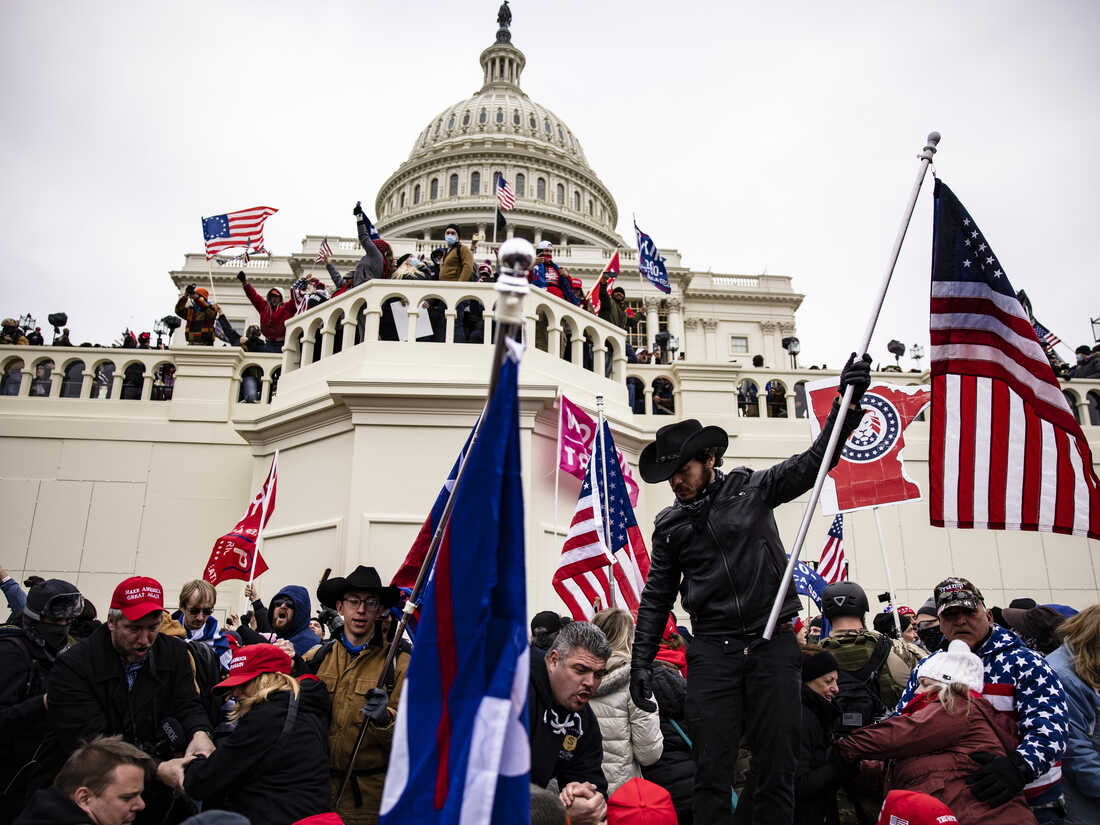
Pro-Trump supporters storm the U.S. Capitol following a rally with President Donald Trump on January 6, 2021 in Washington, DC. Samuel Corum/Getty Images hide caption

Pro-Trump supporters storm the U.S. Capitol following a rally with President Donald Trump on January 6, 2021 in Washington, DC.
Samuel Corum/Getty ImagesIt's been two years since rioters stormed the U.S. Capitol on January 6, 2021, leaving an indelible mark on American democracy.
We speak to NPR Justice Correspondent Carrie Johnson and NPR Senior Political Correspondent Domenico Montanaro, about how the events of that day continue to impact the country two years later.
Email us at
This episode was produced by Connor Donevan, Michael Levitt and Elena Burnett. It was edited by William Troop, Lima Abdullah and Patrick Jarenwattananon. Our executive producer is Sami Yenigun.

 Live Radio
Live Radio